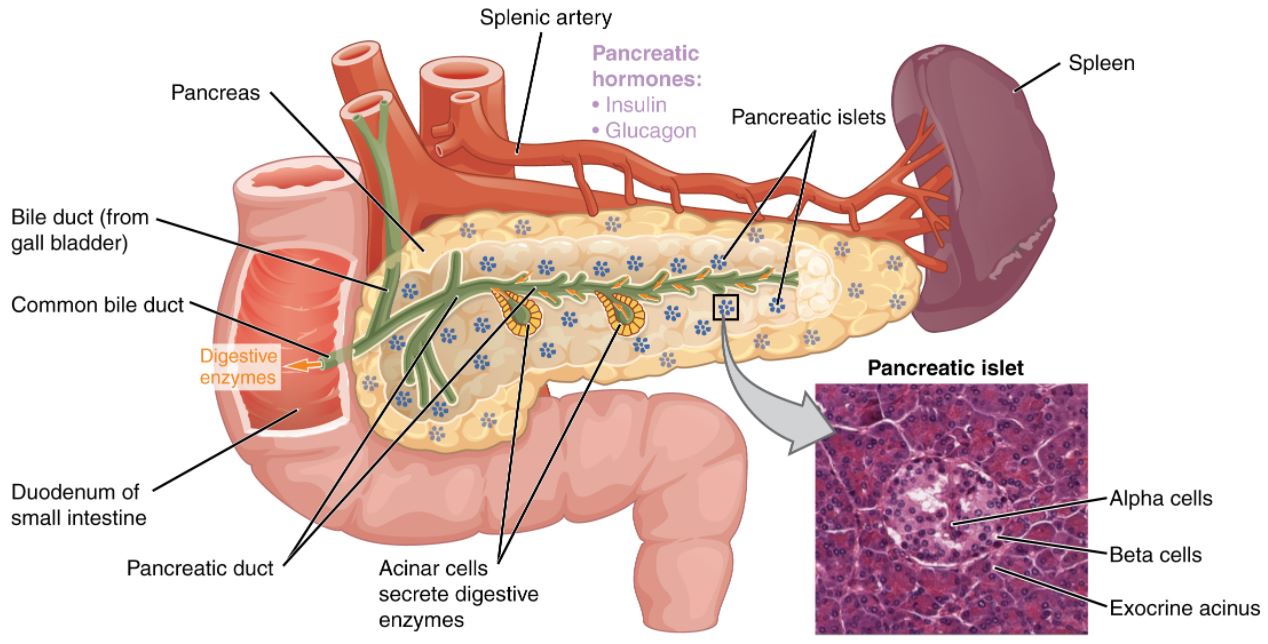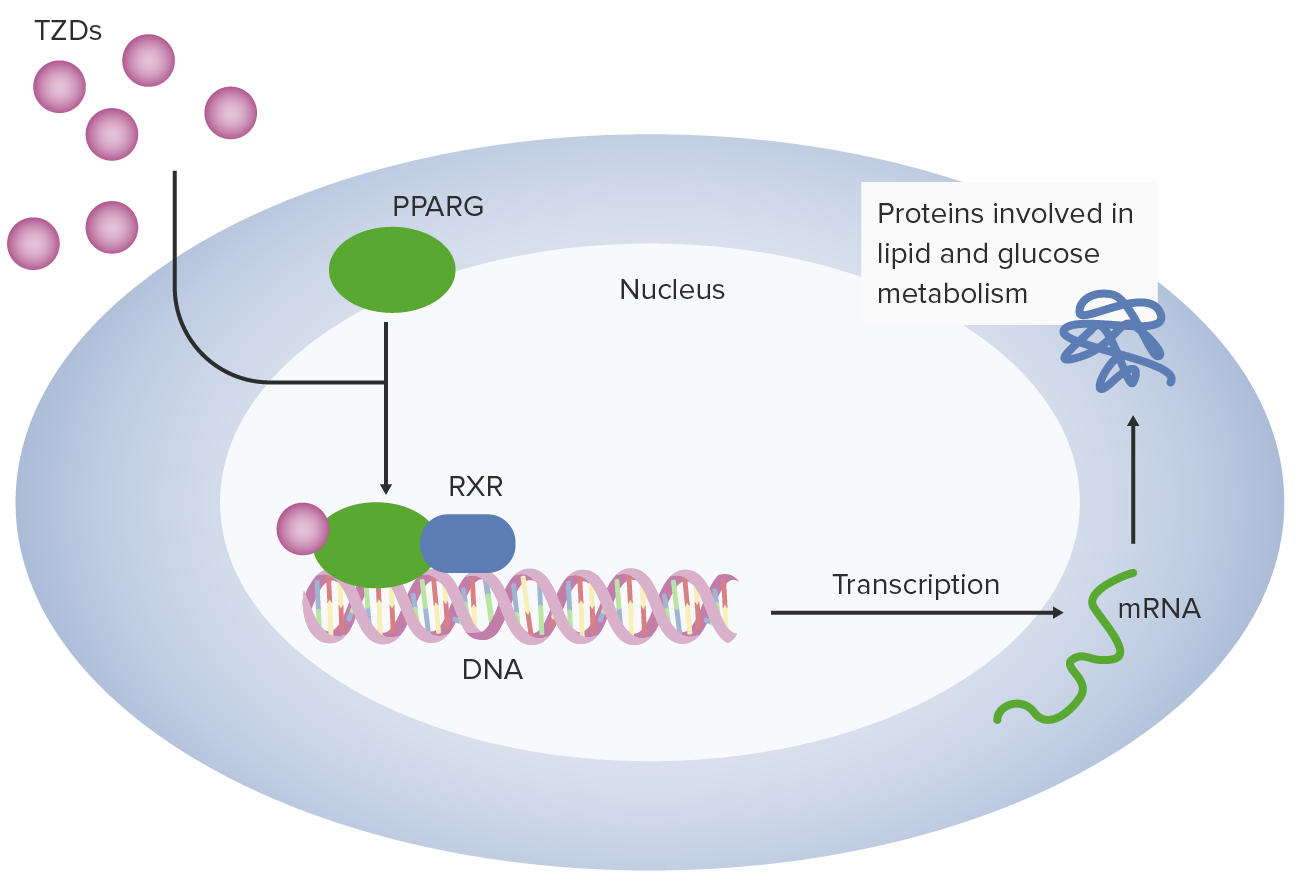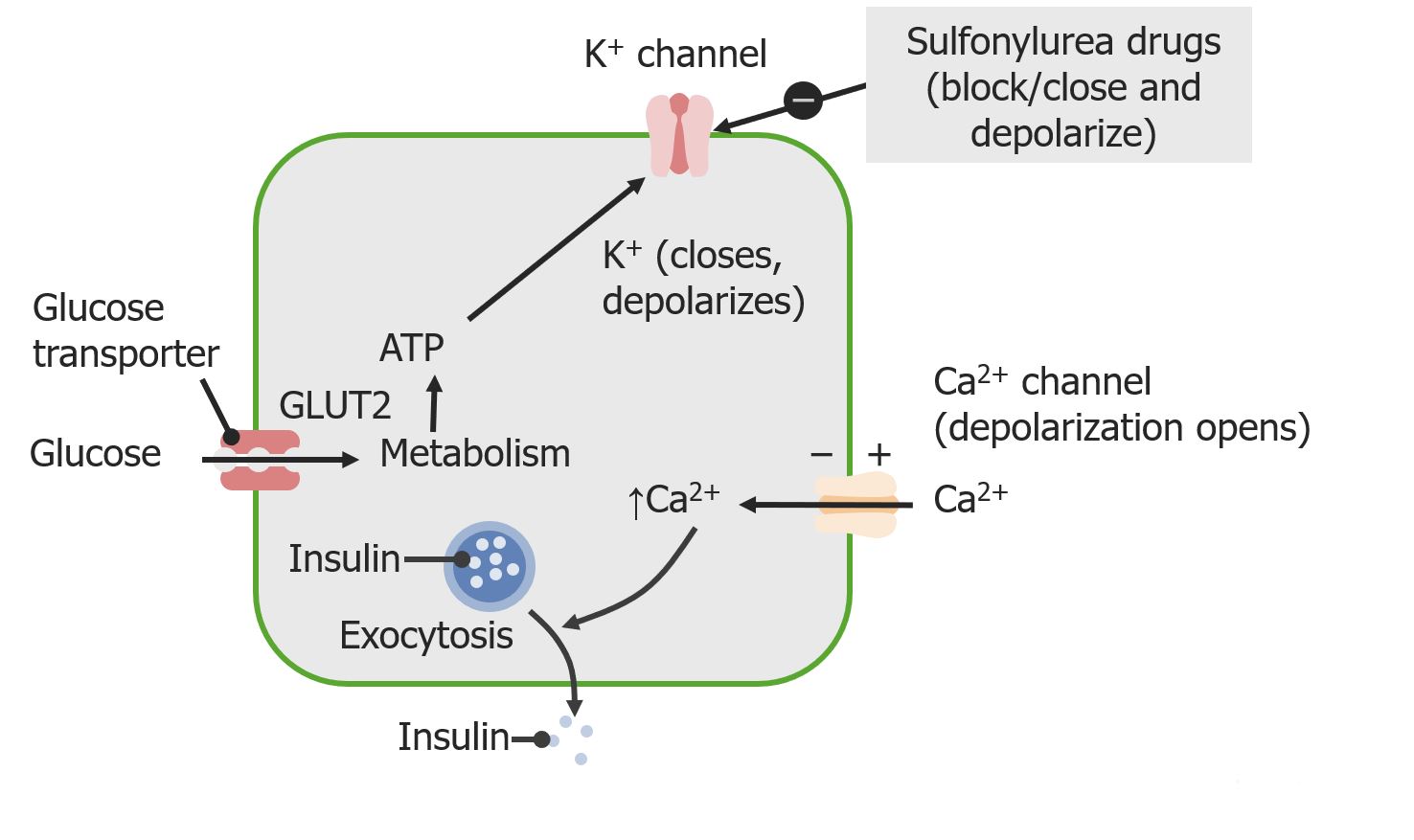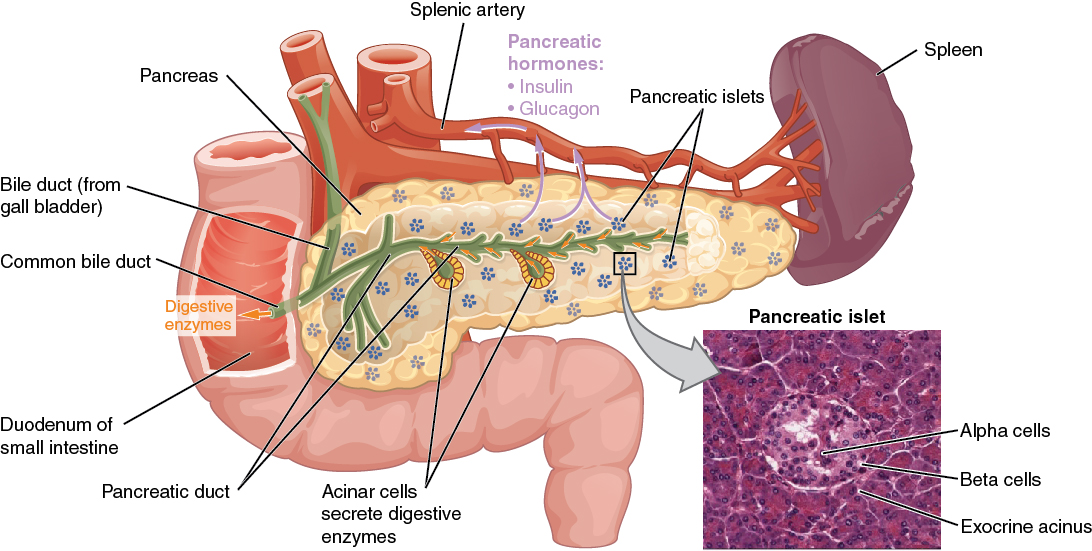Playlist
Show Playlist
Hide Playlist
Metformin, Alpha Glucosidase Inhibitors and Thiazolidinediones — Diabetes Medications
-
Slides Metformin Alpha Glucosidase Inhibitors Thiazolidinediones Diabetes Medications.pdf
-
Reference List Pharmacology.pdf
-
Download Lecture Overview
00:01 Let's take a look at the actions of metformin in each of the different organs. 00:05 In the liver, metformin will activate AMP-stimulated protein kinases and it will inhibit gluconeogenesis. 00:14 This is an important concept to understand because remember that metformin is acting in each organ to reduce blood sugar levels. 00:22 So, reducing gluconeogenesis reduces blood sugar. 00:25 In the kidney it activates AMP-stimulated protein kinase, just like the liver. 00:30 And once again it inhibits gluconeogenesis. 00:33 In the adipose tissue, it activates AMP-stimulated protein kinase, and once again it increases glucose uptake, thereby reducing blood sugar levels. 00:45 In the gut and pancreas, it slows glucose uptake. 00:48 Now, this will reduce plasma glucagon levels as well in the pancreas. 00:53 And that's an important consideration because remember that plasma glucagon will increase blood sugar levels. 01:00 So the actions of metformin by reducing plasma glucagon is really important. 01:06 Let's take a look at another class of drugs, called the alpha-glucosidase inhibitors. 01:11 The prototypical drug is acarbose. 01:13 So, I am going to mention acarbose by name on multiple occasions. 01:17 Now, in the gut, without acarbose you have a tremendous amount of carbohydrate absorption in the small bowel. 01:24 With acarbose in the upper small intestine, you have much less carbohydrate absorption in the upper small intestine. 01:32 And in the lower small intestine, the majority of carbohydrate absorption is occurring. 01:38 Now that doesn't necessarily mean that there is a lot of carbohydrate absorption occurring in the lower intestine. 01:44 It just means that there is a bit of a shift. 01:47 This ends up resulting in a lower glycemic excursion, particularly after meals. 01:54 Alpha-glucosidase will convert starches into monosaccharides. 01:59 Now, the absorption as I mentioned is slowed, but not necessarily reduced. 02:05 It's taken before meal and it affects your postprandial glucose. 02:10 Obviously, if you are going to leave something in the gut for a longer time, you're gonna have more GI side effects. 02:16 And this is really the big problem with this class of drugs and why we don't use them as much as we probably thought we would have. 02:23 Patients hate these medications. They have tremendous amounts bowel irregularity. 02:29 They have tremendous amount of flatulence. 02:31 And you know, many of my patients call them their little fart pills. 02:35 They hate them, and it's just not useful clinically. 02:38 It's important for you to know for your exams though, and I think it's also important for you to know for your exams of the increased GI side effects. 02:46 Because your exam will definitely ask you, if you are talking about acarbose, about the increased GI side effects. 02:54 The treatment of overdose of this medication is dextrose, not sucrose. 03:00 So, remember that, that's an important consideration when you're writing your exams. 03:04 The next class of drugs are called the TZDs. 03:08 They end in glitazone, and so for convenient sakes we actually call them the glitazones, rather than using that big huge name. 03:16 Rosiglitazone and pioglitazone are the two drugs in this drug class. 03:22 Now, these act on something called PPAR-gamma. 03:26 Peroxisome proliferator-activated receptor of the gamma type. 03:31 So, PPAR-gamma is a nuclear receptor, right in the nucleus of the cell itself, and it has multiple effects. 03:39 Number 1, is that it increases glucose uptake in myocytes. 03:43 Number 2, it increases glucose uptake in adipocytes. 03:47 Number 3, it inhibits hepatic gluconeogenesis. 03:51 And number 4, it affects fat distribution in the body. 03:54 Now, when you are looking at your other drugs and you're looking at the TZDs, they seem to be doing the same thing, don't they? But the difference is, is where it's using its effectors. 04:04 And in this case the effectors are PPAR-gamma. 04:08 That's what distinguishes the TZDs from the other drugs. 04:12 It does cause a reduction in fasting glucose and in postprandial glucose. 04:17 The alpha-glucosidase inhibitors are really more about the postprandial glucose reduction. 04:23 When we talk about the TZDs, hypoglycemia is actually quite rare. 04:30 The problem with the TZDs are also its advantage. 04:34 So, the PPAR-gamma molecule is a good molecule to inhibit, but we think that it also has other side effects that cause it to be less of a desirable drug. 04:44 We know that it causes fluid retention. 04:47 Now, we believe that this may lead to an increase in heart failure. 04:51 And there is some suggestion when we do meta-analysis trials. 04:55 We also believe that there may be an increase in myocardial infarction rates with this medication, which I think effectively killed the class, at least in terms of marketing. 05:05 In terms of the liver, you need good liver enzyme monitoring regimens. 05:11 So, you need to be monitoring them on a very regular basis. 05:14 There is some suggestion that there may be an increase in bone fracture risk with these medications. 05:20 So, once again, we think it might be a PPAR-gamma activated or mediated event. 05:26 We're not sure, but we know that these major side effects of TZDs, have really relegated them to the back burner in most people's minds.
About the Lecture
The lecture Metformin, Alpha Glucosidase Inhibitors and Thiazolidinediones — Diabetes Medications by Pravin Shukle, MD is from the course Endocrine Pharmacology. It contains the following chapters:
- Actions of Metformin
- α-Glucosidase Inhibitors
- Thiazolidinediones
Included Quiz Questions
What is NOT a mechanism of action for metformin?
- Decreases the reabsorption rate of glucose in the urine, reducing blood glucose levels
- Activates AMP in the liver
- Activates AMP in the kidney
- Activates AMP in adipose tissue
- Decreases glucose uptake in the gut
What is the major drawback to using acarbose in most patients?
- GI upset
- It is difficult to remember to take the pill before a meal.
- Frequent episodes of hypoglycemia
- Weight gain
- Constipation
What is NOT an effect of PPAR-gamma activation?
- Activation of satiety receptors in the brain
- Increased glucose uptake by myocytes
- Increased glucose uptake by adipocytes
- Inhibition of hepatic gluconeogenesis
- Change in fat distribution in the body
Customer reviews
5,0 of 5 stars
| 5 Stars |
|
5 |
| 4 Stars |
|
0 |
| 3 Stars |
|
0 |
| 2 Stars |
|
0 |
| 1 Star |
|
0 |







